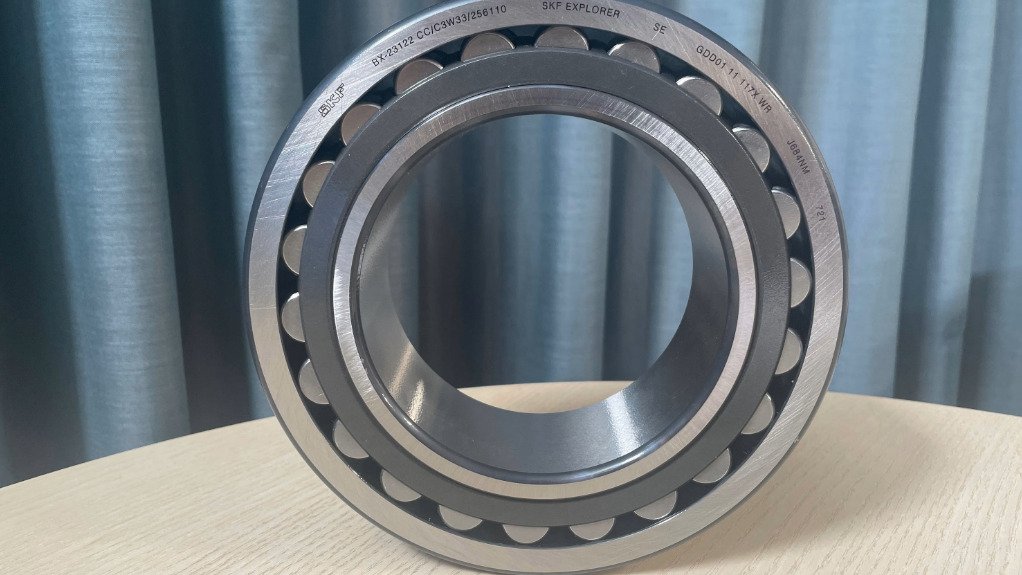Engineering consultant SKF and steel-based technology company voestalpine Wire Technology earlier this year successfully produced the first prototype bearing made from steel that contains hydrogen direct reduced iron (H-DRI).
This represents a breakthrough in the efforts to decarbonise bearing production as H-DRI is a low-emission alternative to conventional iron-ore-based steelmaking and one of the important methods to make steel sustainable in the future.
SKF and voestalpine have been working together since 2022 to explore the possibilities of using H-DRI steel for bearing applications.
The use of H-DRI steel allows SKF and voestalpine Wire Technology to meet the demand for green steel and thereby contribute to the global efforts to combat climate change.
The spherical roller bearing prototype was handed over to voestalpine Wire Technology at SKF’s factory in Steyr, Austria. Spherical roller bearings can be used in many different applications and industries, such as marine, pulp and paper production, mining and construction.
At the time, SKF technology development senior VP Annika Ölme stated that steel is a critical raw material in bearings and, to achieve the change and speed needed in decarbonising bearing production, the whole industry must come together.
“Our collaboration with voestalpine is a tangible example of how we are working together and transforming ideas into actions towards a more circular industrial development,” explained Ölme.
Additionally, she noted that this technology is fundamental for the steel industry to be able to “decarbonise with confidence.”
For voestalpine Wire Technology the partnership with SKF marks a milestone in the development of eco-friendly steel production technologies.
Through the successful integration of green steel solutions into the bearing production process, voestalpine Wire Technology is demonstrating its commitment to reducing CO2 emissions.
This innovation, developed in collaboration with SKF, represents a significant step forward in the company’s efforts to make the steel industry more sustainable.
In addition, SKF is also increasing its use of suppliers who use steel production processes with low CO2 emissions – such as scrap-based electric arc furnace production.
In 2022, SKF became a member of the Steel Zero and the Responsible Steel initiatives, joining other like-minded businesses in showing a clear commitment to decarbonising the steel industry by 2050 and advocating for the changes needed to make that happen.
Edited by: Nadine James
Features Deputy Editor
EMAIL THIS ARTICLE SAVE THIS ARTICLE
ARTICLE ENQUIRY
To subscribe email subscriptions@creamermedia.co.za or click here
To advertise email advertising@creamermedia.co.za or click here













